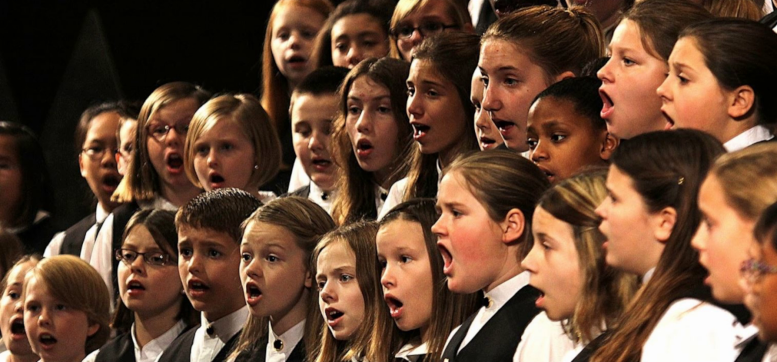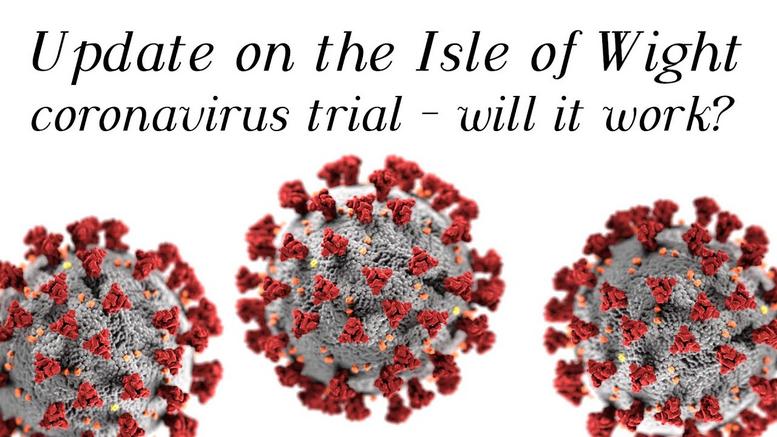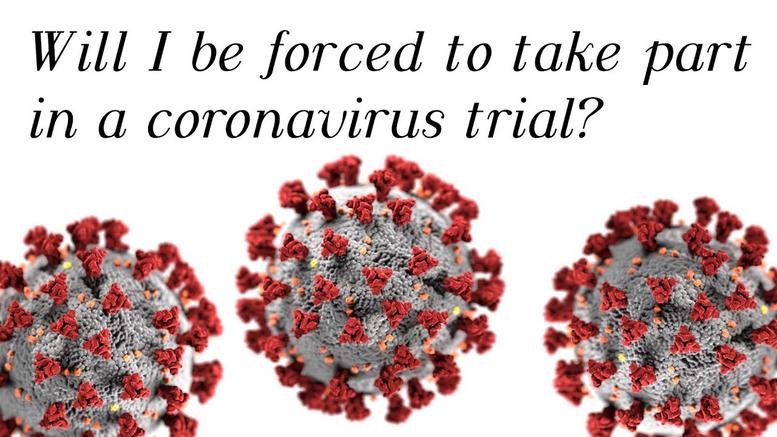No Singing in Church

Video at: https://youtu.be/DG5D_2BaDS0
No singing in church. The chapel is silent today, and it's been silent for a while now.
For fear that we respire, conspire, then expire. Now is the time for silence. To mourn the losses, to bury the dead, for grief to be felt.
Now is the time to quieten voices, to hear that small calm voice of reason telling us what has to change. To keep silent the cars, and the planes. To quieten busy minds' chatter.
To recalibrate, and hold on to that which really matters, amidst the social distance, reaching out for each other.
We will sing again, one day.
We will raise our voices, and be changed.
And even though we sing alone, still sing together.
Update on the Isle of Wight coronavirus app trial - will it work?
Video at: https://youtu.be/9dxnUBfXsIs
So, here's an update from the coronavirus app trial taking place on the Isle of Wight. Today I've received a letter advising me to download and install the contact tracing app developed by NHSX, so I've done that. I've also set up a Bluetooth scanner on my wife's phone, to figure out what data the NHSX app is actually sending over Bluetooth, and as advertised, it sends a number of pings to other devices which are somewhat anonymous, in that the data is recorded of the ping but you don't see a name come up or anything like that on the other phone.
The Good Stuff, Episode One
Video at: https://youtu.be/NMH_d8tMiEw
Andy: Welcome to the Good Stuff, with me Andy Farnell...
Kate: ...and me, Kate Brown.
Andy: Kate is a attachment based psychoanalytical psychotherapist from the UKCP...
Kate: And you are a computer scientist specializing in ...
Andy: You can say Andy is a computer scientist with a very big beard
Kate: Yes, an enormous beard, people! You should see it! It's enormous! It's huge.
Andy: It's getting there.
Kate: You are channeling your inner Father Christmas right now.
Andy: I've got my lock-down beard.
Kate: So, Dan has asked us to talk about immunity passports and I want to set the parameters of what I'm able to talk about with some knowledge, and what I'm not able to talk about with much knowledge.
I'm not an immunologist so I don't know about the research that would govern the idea of immunity passports.
I'm also not a computer scientist who understands how such a plan would be implemented and I'm rather reliant on on your expertise in that area.
I think the reason why Dan has asked me to be here this evening and to talk and think about a wider issue of immunity is because what is likely to be the case is that very strong unconscious feelings will be behind the current social discourse about immunity, and whether immunity passports are a good thing or a bad thing.
Digital immunity certificates, coronavirus and Big Data
Video at: https://youtu.be/mxkWqNVpFWo
I decided to come out today down to a secret and deserted beach, and find a place where I can hear the waves.
It's very relaxing after several weeks in the trenches dealing with a lot of production and cybersecurity issues. I don't know if you guys are aware or how much this is common knowledge, but we're actually under a fairly sustained attack at the moment, for cyber security during the pandemic. A lot of enemies have decided to take advantage of this period of weakness. So as well as the rest of the normal shit-show there's also cyber attacks on the supply chain, and believe it or not on our hospitals.
The NHS is actually under attack again. So how about a shout for all the frontline workers that you don't see wearing face masks, not actually in public facing positions... there's a lot of people working very hard to keep things functioning behind the scenes, in the telecommunications and in cyber-defense.
Okay, so today I'm going to speak to Daniel James's question which he's asked Kate and I to have a look at. One that he feels was systematically ignored by the bioethics conference. I think it was ignored principally because it's just too hard. It's a difficult question. It's certainly not a question that fits into a soundbite culture, and perhaps to criticize Daniel a little bit, I do think it's a bit of a loaded question.
There's a lot to unpack from this, and so actually what I'm going to do is unpack the question into several smaller chunks, and then address each one of these, and see whether I can connect that together at the end.
Will I be forced to take part in a coronavirus trial?
Video at: https://youtu.be/mJ8_VJLwayQ
I live on a small island on the south coast of England called the Isle of Wight. It's about 26 miles across, has about 140,000 people living on it, and it's been selected by our government as a possible location for a coronavirus trial.
This is a trial intended to model the spread of coronavirus in a situation where lockdown is lifted, or at least partially lifted, for some people. The details on this are very, very scarce. It has been suggested that some sort of contact tracing using an app that works by scanning the Bluetooth of other phones that you've been in contact with might be part of this trial. There would be some testing of some kind, and there would be these sort of digital certificates, immunity certificates as they've been called, that are used to identify when a person is able to move more freely.
I attended a webinar by the Nuffield Council on Bioethics recently, held jointly with the Ada Lovelace Institute, and this was about using data-driven technologies to fight Covid-19. But I came away from that webinar feeling quite sceptical. The problem is that when you build any kind of app, any kind of software, you have interfaces to the real world, and those interfaces depend on a model, certain assumptions about the real world that the software is going to process in order to deliver some sort of results, some sort of outcome.
It occurred to me that we're very, very early on in the knowledge of Covid-19 and these coronaviruses. We don't really have reliable tests, in the sense that the tests we do have haven't been around for long enough to be fully evaluated, and this gave me some concerns because if you're building a digital infrastructure on the basis of biological tests which aren't known to be reliable, then you have potential problems.




